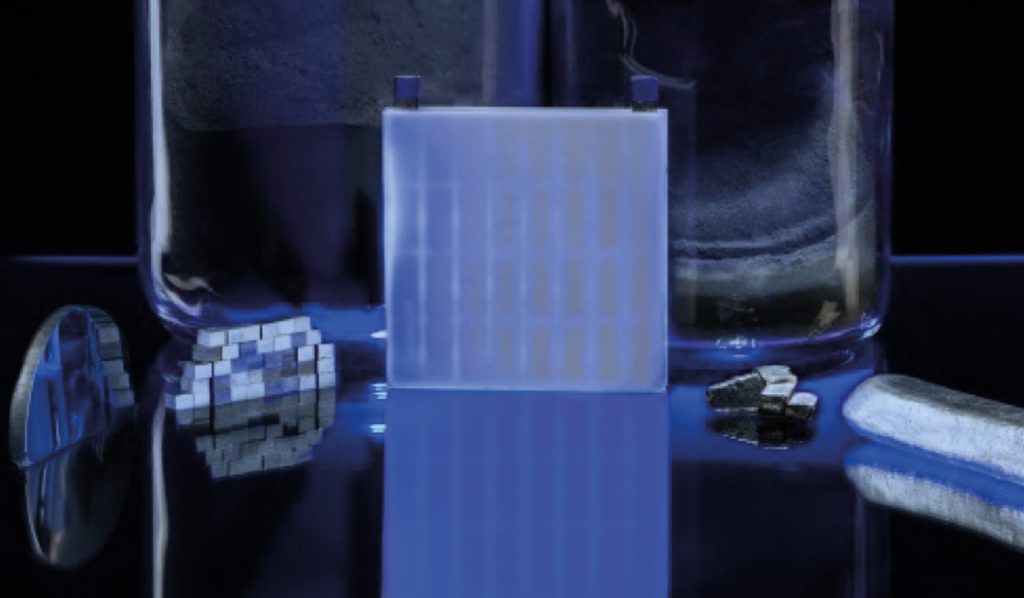Thermoelectric generator
By directly converting unused heat into electrical power, TEGs reduce primary energy consumption and protect the environment. Thermoelectric energy conversion is possible over wide temperature ranges, with effciency levels of 10 percent and over. The key to optimised applications lies in the development of highly effcient materials and stable electrical contacts within the thermoelectric module, as well as specially adapted, effcient heat exchangers.
The main objective is to develop highly effcient thermoelectric generator modules with high long-term stability for source temperatures of 400–800°C. As such, the aim is to set up and test thermogenerator demonstration models in various application scenarios, in conjunction with other institutes and industry partners. In addition to the development of effcient transducer materials for high temperatures, the electrical and thermal contacts within the module present a particular challenge when creating the core element of the TEG – the thermoelectrical module. Depending on the thermoelectric material class, these contacts have to be adapted specially in order to withstand the required temperatures and thermal and mechanical loads. The development of specialised measuring methods for thermoelectric materials and systems is therefore necessary in order to determine the effectiveness in each application scenario.
There are many possible uses for TEGs. They can provide electrical energy where it is required, for example for process-monitoring sensors, thus avoiding long supply lines. By using TEGs in the automotive industry, for instance, or in energy-intensive industrial processes, it is possible to save fuel and make the process more effcient as a whole.
Waste heat from a flue or pellet stove, for example, can be used to provide additional electrical energy, depending on the application. The provision of electrical energy can also be used to save batteries. Rechargeable batteries can be recharged for certain applications, eliminating the need for conventional batteries altogether, such as for the electric ignition of gas burners.
German Aerospace Center (DLR)
Christian Stiewe · E-Mail: christian.stiewe@dlr.de · DLR.de/en
